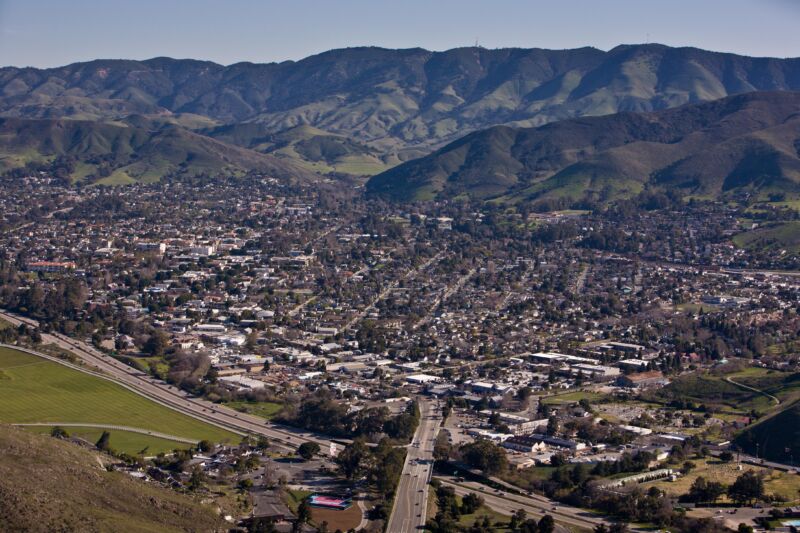
There’s a battle raging in California over the future of natural gas. Environmentalists want building codes to encourage new buildings to be electrically heated in order to reduce carbon emissions. Natural gas utilities and labor unions representing their workers have been united in their opposition to these laws.
In March, Eric Hoffman, president of a local utility workers’ union, used an unusual tactic to stop the adoption of a new clean energy building code in San Luis Obispo, a city on California’s central coast.
“If the city council intends to move forward with another reading on a gas ban, I can assure you there will be no social distancing in place,” Hoffman wrote on March 16, in an email obtained by the Los Angeles Times. “Please don’t force my hand in bussing in hundreds and hundreds of pissed off people potentially adding to this pandemic.”
City officials say they were shocked by this apparent threat to potentially expose people to COVID-19. But Hoffman got his way. Officials abandoned plans to vote on the controversial new law at an April 7 meeting.
Michael Codron, the city’s community development director, told the LA Times that Hoffman’s apparent threat played a role in the decision to cancel the vote. “There’s no way to know whether it was bluster,” Codron told the Times.
The fight in San Luis Obispo is part of a broader debate over the future of energy in the Golden State, as the LA Times explains:
Climate activists and many energy experts see transitioning to all-electric buildings as the best way to slash emissions from homes and businesses. Gas is a fossil fuel that contributes to climate change, whereas California’s electricity is increasingly supplied by climate-friendly sources such as solar and wind farms.
SoCalGas has responded by convincing nearly 120 cities and counties to approve similarly worded resolutions, originally drafted by the gas company, calling for “balanced energy solutions.” The company’s climate solution of choice is renewable natural gas—a fuel that could replace some of the fossil gas that contributes to climate change, but which experts say has serious limitations.
The San Luis Obispo proposal would make all-electric construction the default in the city. Developers who wanted to offer natural gas in a home would have to either retrofit other homes or pay into a fund to reduce the use of natural gas elsewhere in the city.
City officials say they haven’t given up on passing the proposal, but they’re not sure when the new vote will happen. The city hopes to organize a digital forum that would allow members of the public to comment on the proposal remotely. But that idea is “fraught with technical challenges,” Coldron told the LA Times, so the city hasn’t attempted it yet.
https://arstechnica.com/?p=1673935

